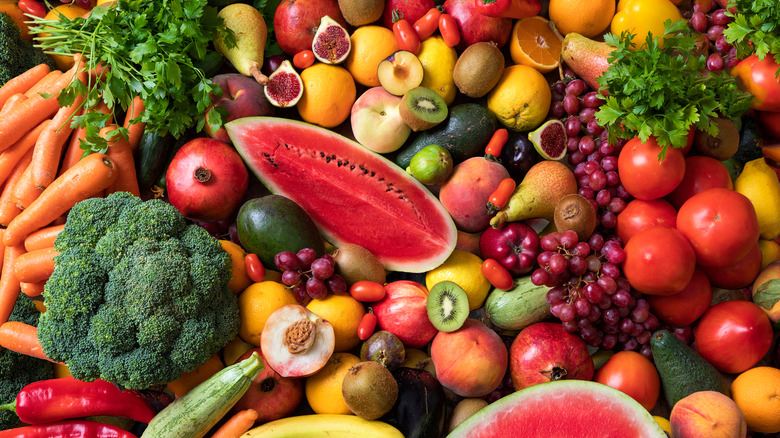New Study Reveals The Effect A Vegetarian Diet Can Have On Kids
Wanting our children to eat healthy and nutritious foods is something that everyone can agree is a good intention. Unfortunately, we live in a time where fast food brands and candy companies set their sights on the little ones. U.S. News reports that toddlers between the ages of two and five were exposed to an alarming average of 830 fast food commercials throughout 2019. Considering this, along with other factors, some parents are moving their kids toward a vegetarian diet.
Nemours KidsHealth explains that a child-friendly vegetarian diet can indeed be healthy, just so long as it's planned well with lots of variations of foods included, such as fruit, vegetables, nuts, and legumes. On the other hand, attn: reports that a vegan diet may not be the best idea for your child, as it cuts them off from a wider source of vitamins, nutrients, iron, and proteins that they would receive in a more inclusive diet.
But these arguments are best suited for helping one to decide if they should help their child embrace a vegan lifestyle. What would a child's health look like if they were to follow a vegetarian diet for a few years? What sort of benefits and drawbacks, if any, would be evident?
Children on a vegetarian diet may be underweight
The American Academy of Pediatrics published a study through St. Michael's Hospital Pediatric Clinic in Toronto and Toronto-based primary care center TARGet Kids!. The purpose was to research the relationship between vegetarian diets and growth in children. 8,907 children from 6 months to 8 years old participated in the study, with 248 of them following a vegetarian diet. The children's height, weight, and nutrition were all compared in order to gauge what, if any, relationships were formed between diet and growth.
The researchers were surprised to find that children who had vegetarian diets had sufficient amounts of nutrients such as iron and vitamin D. This is opposed to the scientists' original hypothesis that children following a vegetarian diet would have fewer nutrients compared to their peers. What they also discovered, however, was that children on a vegan diet were twice as likely to become underweight when compared to their meat-eating peers, increasing the risk of malnutrition. Currently, there are an estimated 17 million malnourished children in the United States (via Save the Children).
A smaller study of 187 children ages 5 to 10 out of Poland found that the children on vegetarian diets fared well with cholesterol and heart health, but showed lower bone density due to a lack of calcium and vitamin B (via Insider). To combat this, experts recommend supplementing with certain vitamins and minerals.
According to Insider, research in this area is still ongoing, as there are many contributing factors to the previous results.

